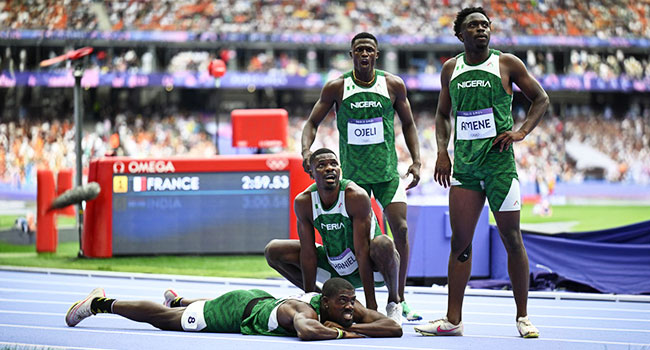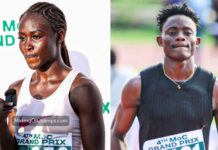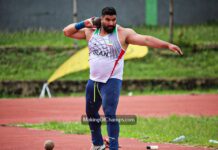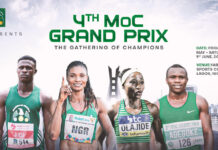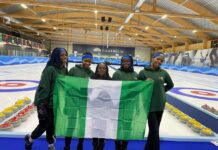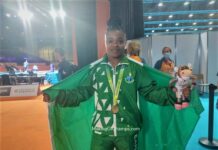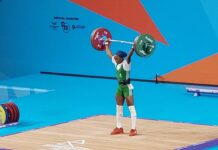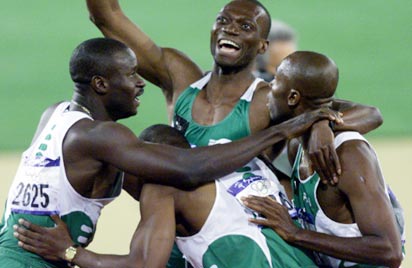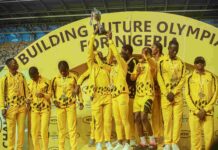The rich history of Nigerian Athletics cannot be complete without the mention of the country’s male quartermilers. They were a force to be reckoned with from the mid-80s to the early 2000s, paving the way for Nigeria’s medal haul in Track and Field across major international competitions, starting with a historic Bronze medal in the 4x400m at the 1984 Olympics, courtesy of Innocent Egbunike, Sunday Uti, Moses Ugbisien and Rotimi Peters.
The previous year, Egbunike had won the 200m title at the World University Games while Uti claimed GOLD in the 400m race. The former would also go on to win a Silver medal in the men’s 400m at the 1987 World Championships in Rome, Italy, having claimed the African Games title a few weeks prior. He won the African Championships GOLD a year later as well.
The 1990s saw Sunday Bada emerge men’s 400m Champion at the 1997 World Indoor Championships, following the Silver medals he won at the 1993 and 1995 editions respectively. He had anchored the team of Udeme Ekpeyong, Kunle Adejuyigbe and Jude Monye to a Bronze medal at the 1995 World Championships in Goteburg, Sweden. That generation also had Clement Chukwu who won the men’s 400m title at the World University Games in 1997 and emerged African Champion the following year.
The pinnacle of Nigeria’s success was at the Sydney 2000 Olympics where the quartet comprising of Chukwu, Monye, Bada, and Enefiok Udo-Obong smashed the African Record to finish 2nd behind USA, but were upgraded to GOLD after a member of the US team admitted to using banned substances. That GOLD medal remains the country’s sole medal of that colour in a track event, with Nigeria being the only African country to win GOLD in the men’s 4x400m at the Olympics to date.
At the next edition of the Olympics, the Athens Games in 2004, Godday James, Musa Audu, Saul Weigopwa, and Udo-Obong raced to a Bronze in the 4x400m. As such, Udo-Obong is the only Nigerian male athlete with two Olympic medals to his name.
A decline began to set in towards the late 2000s as athletes found it increasingly difficult to qualify for global competitions across the men’s 400m and 4x400m respectively, as well as win medals in continental championships, playing second fiddle to countries like Botswana, South Africa and Kenya.
Egbunike’s then African Record of 44.17s over 400m set in 1987, stood for 19 years until it was taken down by Congolese athlete Gary Kikaya in 2006 (44.10s). In 2015, South Africa’s Wayde Van Niekerk ran a new AR of 43.96s, which was obliterated by Botswana’s Isaac Makwala a day later when he clocked 43.72s in La Chaux-de-Fonds, Switzerland. Van Niekerk would then race to another new AR of 43.48s to win the World title in 2015, and ultimately set the World Record (WR) of 43.03s to win GOLD in the men’s 400m at the Rio Olympics in 2016.
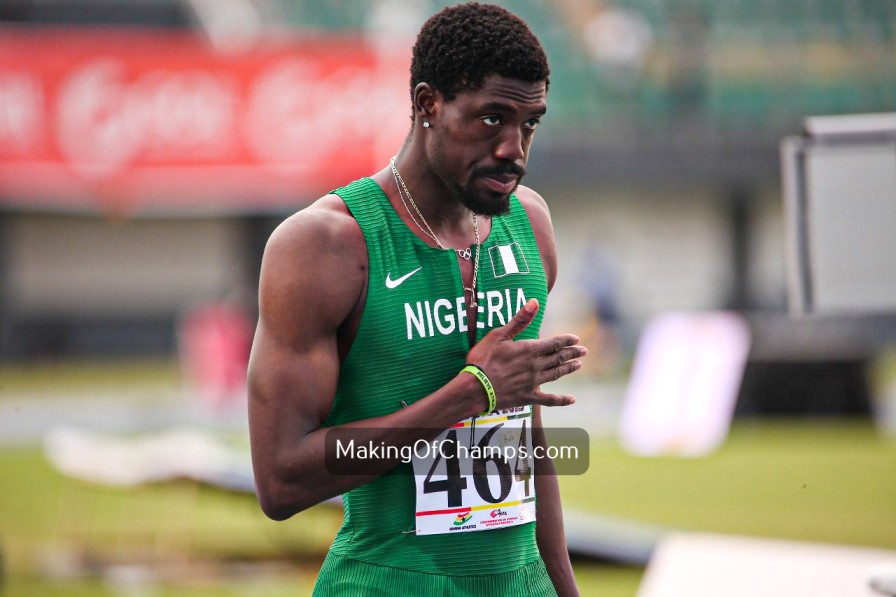
A glimmer of hope arose for Nigeria when Orukpe Erayokan dashed to an impressive 44.95s at the 2015 African Games in Congo Brazzaville. However, the optimism was rather short lived as things went back to default settings for nearly a decade.
Fast forward to 2024, Nigerian male quartermilers had a remarkable season, achieving records that sent ripples of excitement across the nation. It all started at the African Games in Accra, Ghana, where Chidi Okezie, who has been one of Nigeria’s most instrumental 400m runners in almost 10 years since making his international debut for Nigeria in 2016, made history by becoming the first Nigerian since Egbunike in 1987 to win the 400m title with a Personal Best (PB) of 45.06s, which was the fastest time recorded by a Nigerian in nine years. He also anchored the men’s 4x400m team which had Emmanuel Ojeli, Samson Nathaniel and Sikiru Adeyemi to a Bronze medal.
Two months later, Nigerian male quartermilers ran their fastest 4x400m time in two decades at the World Relays in the Bahamas, qualifying them for the Olympics since their last outing in Athens 2004. The quartet of Dubem Nwachukwu, Okezie, Adeyemi, and Dubem Amene produced a sizzling time of 3:01.70.
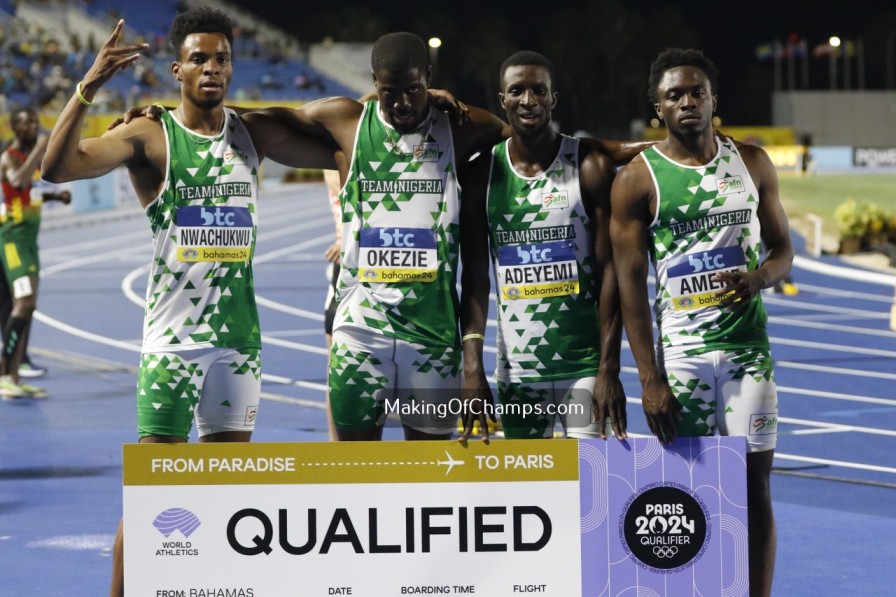
Another milestone was achieved when Okezie and Samuel Ogazi qualified for the Olympics in the 400m, making it the first time in 24 years that Nigeria had more than one representative in the event on the men’s side. In addition, it was also the first time Nigeria produced two athletes who ran a sub-45 in the same season since 1997.
Ogazi clocked a 44.52s to earn the Silver medal at the NCAA Championships, crowning a sensational freshman year, which saw him run multiple sub-45 times and smash his program’s record, while Okezie’s 44.97s was done at the Edmonton Classics.
The National Trials witnessed all three medallists run under 46s. Amene took the title in 45.44s while Ojeli and Nwachukwu posted 45.69s and 45.70s respectively. Amene’s winning time of 45.44s was the fastest winning time recorded at the National Trials since Godday James’ 45.36s in 2008.
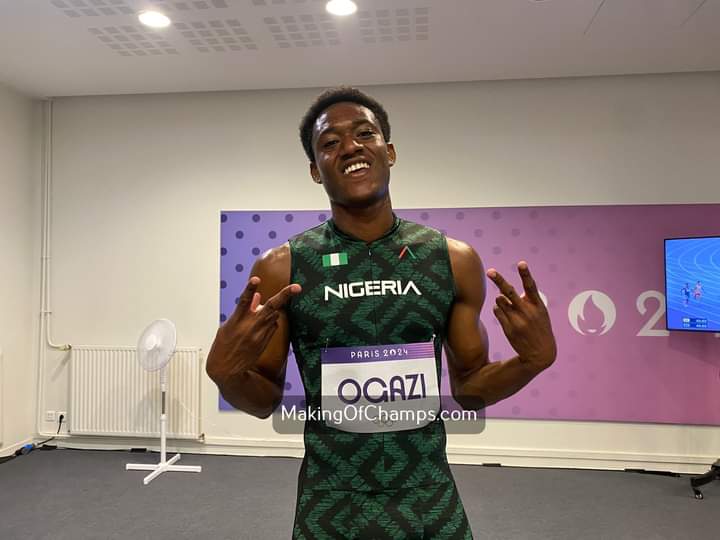
At the Paris Olympics, history was once again made as Ogazi dashed to a PB of 44.41s to qualify for the final, becoming the first Nigerian to achieve this feat since Egbunike in Seoul ’88, where he eventually placed 7th. His time elevated him to No. 2 on the Nigerian all-time list.
Unfortunately, the 4x400m team made up of Ojeli, Ezekiel Nathaniel, Amene and Okezie who briefly qualified for the final of the 4x400m with a Season’s Best (SB) of 2:59.81, their fastest time since 2004, got disqualified for a lane infringement.
After such a historic 2024, it goes without saying that there’s a lot more to come from this generation of quartermilers ahead of the 2025 Athletics season and beyond.
